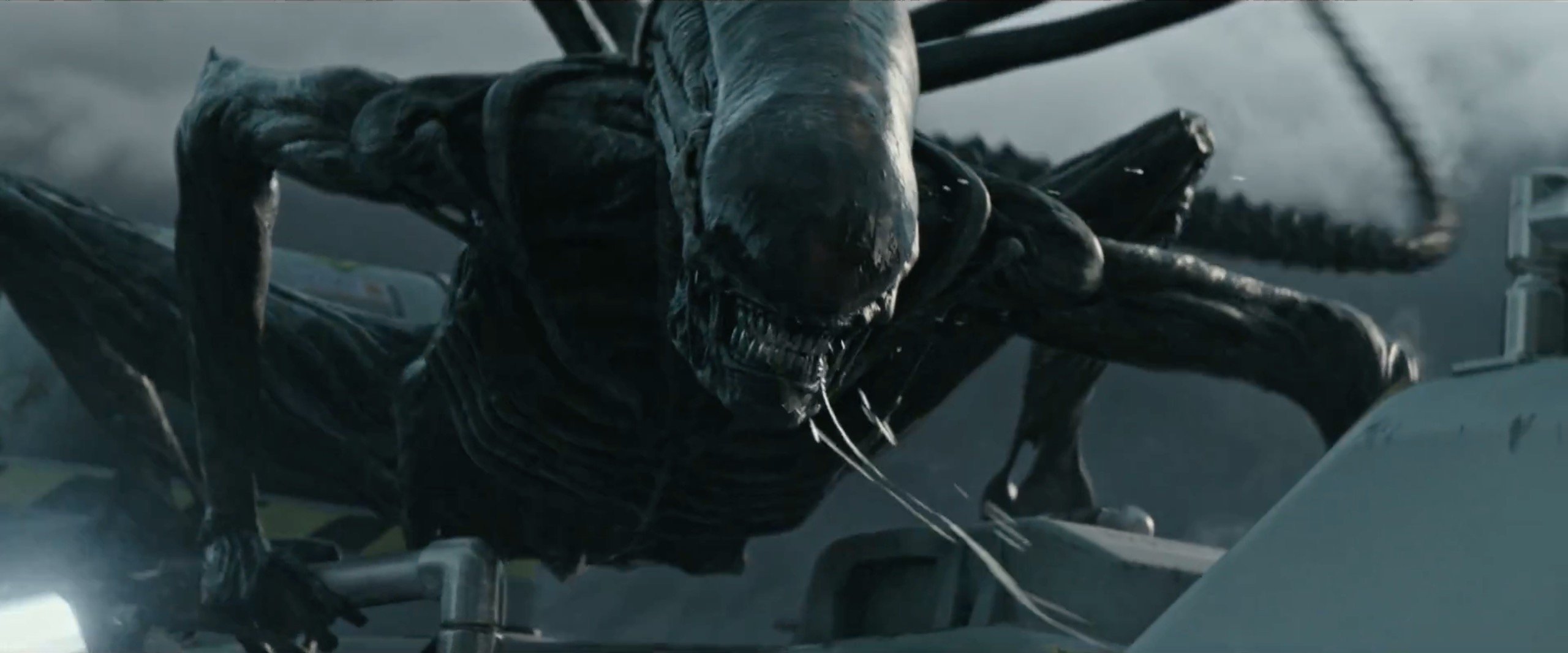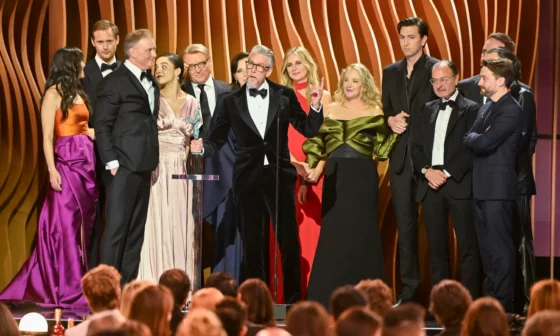
2012’s Prometheus was derided for many reasons, but one of the earliest complaints was that we were promised a pure Alien prequel, but were in fact given the beginning of an Alien origin story destined to run for multiple films.
Now that Alien: Covenant has arrived, it’s clear that as these films actually get closer to Alien, inherently they begin to resemble a cheap imitation of the 1979 original.
Prometheus, for all its flaws, at least had intrigue within its pores. It was far enough back in the Alien universe to craft its own unique vision. With Covenant, we’re beginning to matriculate into the world director Ridley Scott made us fall in love with, and thus the references to the original film, instead of feeling like welcome reminders, stick out like sore thumbs.
Covenant might (might) be a more well rounded film than Prometheus, but mostly it’s a weaker version of Alien.
This film has plenty in common with Scott’s 2012 film too. The opening 45 minutes might as well have been a carbon copy. At this point you’ve got to wonder if any of these films will open without an hour of generic characters hanging out on the ship and introducing themselves via shoddy exposition.
Naturally, Alien films can only be written in certain ways – a crew and a ship are pretty much essential for a film in this franchise to exist – but the formula Covenant follows resembles not only Prometheus, but practically every Alien film, making almost everything we see a not-so subtle reminder that we’re watching a poorer version of a classic film.
Both this and the 2012 film have attempted to explore the higher philosophy of the series but failed each time. There’s clearly a desire from Scott to get mythological and dense which is commendable, but the search to meet thy maker or debate who is worthy of being a creator is gesticulated at but never actually acted upon.
Most of this philosophising comes from Michael Fassbender as both androids David and Walter, and his presence in both films adds a layer of intrigue without a doubt – without him these films would just be bone-headed slashers – but even his character(s) arc is flimsily held up by barely-coherent logic and an understandable-but-not-particularly-interesting motive.
Yet, while Prometheus had higher highs – the cesarean scene is an all-timer, and the film is arguably the grossest (in a good way) film of the franchise – Covenant has the trump card: the Xenomorph, and it’s practically a scientific fact at this point that it makes any film better. Xenomorph in an Adam Sandler comedy? A better film. Xenomorph in an Oscar bait drama? A better film.
It’s the perfect sci-fi antagonist in all its sexual, grotesque glory and we should thank the late, great H.R. Giger for such an expressive creation. Covenant mostly improves as it progresses because the Xenomorph arrives and reeks havoc.
Admittedly, there are only so many ways you can write and film a Xenomorph-vs-humans battle so while some of the grand scenes feel a little like a rehash, the tension is a constant presence and the terror is certainly there, thus these scenes work and are the highlight of the film.
The film has enough intriguing creations to make moments containing any alien interaction worthwhile. What holds it back is a slow, plodding opening and a generic formula which feels completely tired at this point.
What’s becoming clear is that while Scott intended these sets of prequels to mostly explore two things – how the Xenomorph came to be and the wider question of man’s search for a larger purpose in life – they’ve eventually just turned into less interesting versions of the original trilogy.
We’ve realised that, while the origins of the Xenomorph make sense and are somewhat interesting, the beauty of the original creation was that the menace and horror came from the mystery and the unknown, and all the potentially interesting alien-development in the world isn’t going to make these films feel like anything other than half-baked ideas cashing in on a profitable product.
#Peace.Love.Alien








